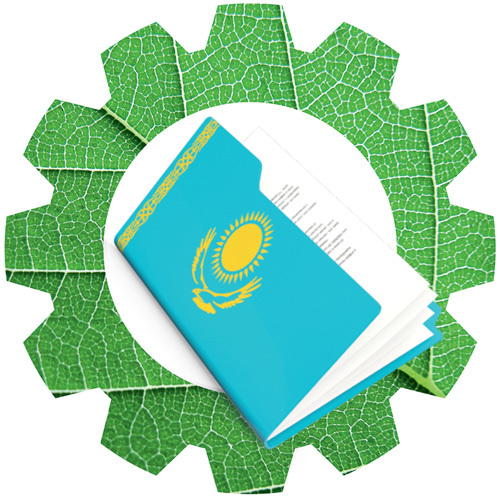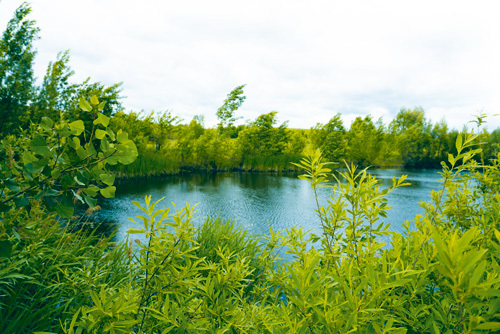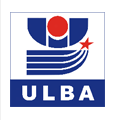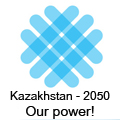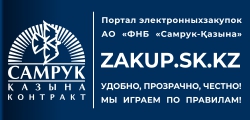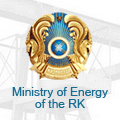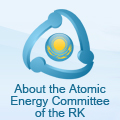Time for Huge Projects
Environmental protection activities are one of the most important ones at Ulba Metallurgical Plant (UMP). The UMP approach to the solution of any environmental problems in a complex manner. At the same time, in order to enter the world markets, it is necessary to manufacture products under environmentally friendly conditions and comply with the international environmental management standards.
NEW OPPORTUNITIES FOR IMPROVING THE ENVIRONMENTAL SITUATION IN THE COMPANY
The new Environmental Code put into effect on July 1, 2021 in the Republic of Kazakhstan introduces significant adjustments to the business of UMP in the direction of environmental protection. So, in the period of 2024 to 2025 the issuance of integrated environmental permits is envisaged as opposed to the current issuance of permits for each area separately. Also, Kazakhstani companies included in the Top-50 with 80% of all emissions from the enterprises of the Republic of Kazakhstan will have a comprehensive technological audit. UMP is not included in this list; moreover, it is not included in the list of 120 enterprises which should first of all switch to the integrated permits. However, the plant positions itself as an environmentally responsible enterprise, so the management decided to go through all the procedures provided for by the Environmental Code for Top-50 enterprises. At present, an agreement has already been concluded on a comprehensive technological audit, and the work is underway to prepare initial information for the assessment of the UMP’s manufacturing processes compliance with the advanced world technologies.
ENVIRONMENTAL PROJECTS
The main environmental actions are aimed at protecting the air basin from harmful emissions. As part of these actions, 133 fine filters made of Petryanov cloth and 194 lavsan filters at the ventilation systems of Beryllium Operations were replaced in 2020. The level of emissions to the atmosphere from stationary sources of UMP does not exceed the established standards.
In addition to the industrial environmental control program, UMP has developed the waste management program. So, for example, equipment of Uranium Operations, dismantled during the upgrade of the manufacturing processes and contaminated with radioactive substances is transferred for remelting. More than 113 tons of radioactive metal were processed in 2020.
The construction of an Evaporator Pond (Map) No.5 has also been completed. Evaporation Pond No.5 is required to receive liquid industrial waste from Beryllium Operations (pulp) and receive and dispose of the clarified portion of pulp from Map No.2 by evaporation. Commissioning took place at the end of 2020. The evaporation pond will allow UMP to achieve a balance between the amount of liquid industrial waste placed at the Tailings Facility and the amount of evaporated liquid from the surface of the Maps.
ONLINE-MONITORING
The UMP’s action plan for environmental protection includes the introduction of the real time automatic monitoring of harmful emissions. The project involves the installation of emissions control system at the main sources of the UMP’s Uranium, Beryllium and Tantalum Operations. The result of the project will be continuous automated monitoring of emissions.
Design works are planned for this year and construction and installation works will be carried out in 2022.
PLANT AND CITY
Another interesting project is "Determination of the contribution of UMP JSC to cumulative (accumulative) pollution of air, water resources and/or ecosystems", as part of the implementation of the Environmental and Social Action Plan (ESAP) of NAC JSC Kazatomprom. This project is aimed at the study of the ecological state of Ust-Kamenogorsk. Its purpose is to determine the potential impact of the plant on the environment components and the population living near the production facilities. The study will be carried out in different directions of the impact of our plant and, as a result, will give an objective picture of the impact of the plant on the population of the city and the ecosystem of Ust-Kamenogorsk.
THERE ARE PROBLEMS - THERE ARE SOLUTIONS
Business of a large enterprise, including in terms of ecology, is never problem-free. Currently, there are topical issues on which systematic work is underway. Let us consider the key ones.
One of the important projects is the decommissioning of equipment containing polychlorinated biphenyls - PCB materials (liquids, lubricants, additives, transformer and capacitor oils), which are classified as persistent organic pollutants (POPs). Their production has completely ceased all over the world. For the earliest environmentally safe neutralization of these materials, in 2001 most countries signed the Stockholm Convention on POPs. The Republic of Kazakhstan, in accordance with the relevant Governmental Resolution, has undertaken to completely neutralize the existing materials until 2025. To date, it is planned to gradually replace about 2,000 items of equipment using PCBs. Due to the lack of capacity in the country for the disposal of POPs, these hazardous materials will be sent to processing plants abroad.
The primary problem for UMP is the procedure for establishing standards for the waste water discharged to Ulba River. According to the current instructions, it turns out that the higher the result of purification of the waste water, the more stringent the requirements will be when obtaining permits for the next period, because the permissible indicators are calculated from those already achieved earlier. It turns out that UMP discharges much cleaner water into Ulba River than water in the river itself and the composition of elements is much lower than the maximum permissible concentrations established for rivers. For deviations from these standards, without taking into account the fact that discharges are significantly lower the MPC, enterprises are subject to fines. This issue was raised at the level of the corporate center, and proposal letters were also sent to the central executive body in the field of environmental protection.
The way out of this situation is the construction of a circulating water supply facility on the territory of the plant, or a phased transition of the shops to the use of so-called chillers. Chillers are water coolers that are able to supply water along the circuit, while cooling the equipment within one building without any discharge. A pilot project will soon be implemented in one of the shops of Tantalum Operations.
Another problem is the established MPC of waters discharged from the Karadzhal mine, which is incorporated into our company. Water from the background (natural) wells which enters the mine is in fact ten times more contaminated than the standards for the discharge of waste water established for the enterprise. The company contributes significant efforts and money to the studies to prove that the ore mining process does not affect the state of groundwater in the region.
Implementation of the planned activities allows UMP to remain one of the notable participants in environmental safety and environmental protection initiatives in the region. The company makes significant investments in the implementation of environmental projects. At UMP they do everything possible to minimize the impact of production activities on the environment and population. After all, it is important for everyone that the native land in which we live, the homeland where our children grow up be clean and still generous to people.
Anna Chumina
